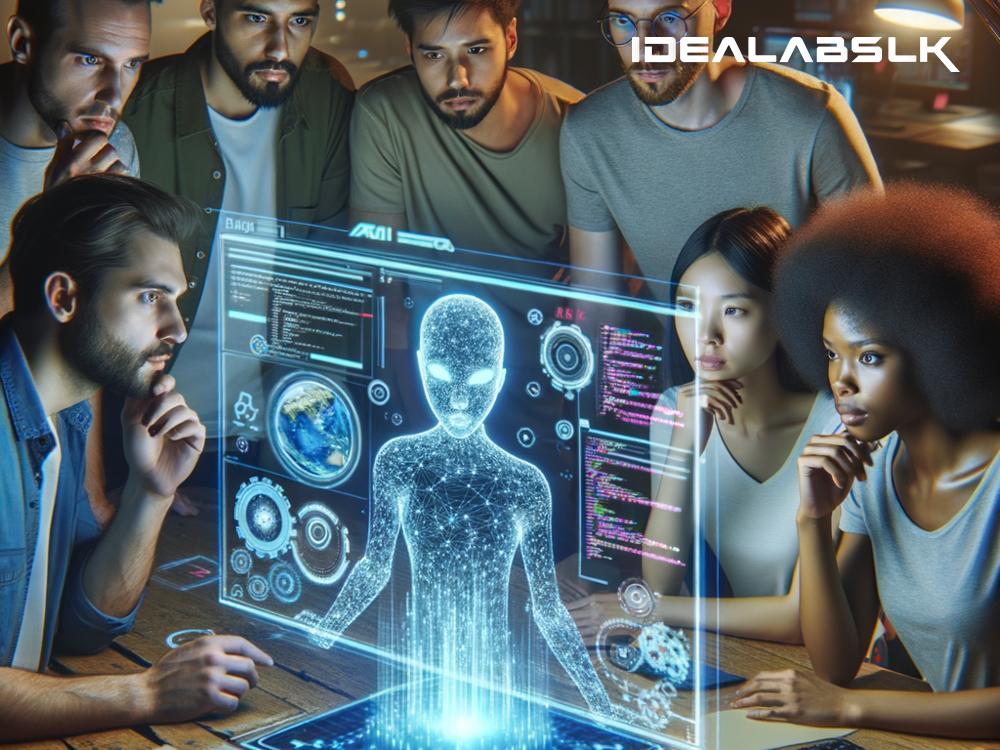The Future of Game Development: AI at the Helm
Picture this: It's 2025, and the gaming world is abuzz with excitement, brimming with experiences that were once thought to be decades away. At the forefront of this revolution are AI-powered tools, reshaping and enhancing the creative process for game developers in unimaginable ways. Gone are the days of mundane tasks and bottlenecked creativity - a new era of boundless imagination and efficiency has dawned, thanks to artificial intelligence.
Unleashing Creativity Like Never Before
In recent years, we’ve seen AI make its tentative first steps into various creative fields, and game development is no exception. But by 2025, AI-powered tools have taken a giant leap forward. These tools now understand the nuanced needs of creators, adapting and suggesting improvements in real-time. Imagine brainstorming with an AI, where you throw in a basic game idea, and it immediately generates concept art, storyline suggestions, and even basic code snippets. This isn't just about speeding up the development process; it’s about making it more dynamic and letting developers explore creative avenues they might not have considered before.
Automating the Mundane, Focusing on the Unique
A significant portion of game development traditionally involves tedious, repetitive tasks. By 2025, AI steps in to automate much of this grunt work. This automation ranges from coding basic game mechanics to designing standard game assets. With these tasks handled by AI, developers can focus on what truly matters: crafting unique gameplay experiences and narratives. This shift doesn't just save time; it spurs innovation, as creative minds spend less time on the mundane and more on the revolutionary.
Personalized Gaming Experiences
AI doesn’t stop at assisting developers; it extends its reach to the end product, transforming how players engage with games. By 2025, AI-powered tools enable the creation of deeply personalized gaming experiences. Games dynamically adjust difficulty levels, storylines, and even visual aesthetics based on the player's preferences and playstyle, all in real-time. This level of personalization makes each player’s experience unique, enhancing engagement and emotional connection with the game.
Collaborative Gaming Worlds
One of the most exciting advancements by 2025 is the use of AI in developing collaborative and ever-evolving game worlds. These are worlds that grow and change, not just through developer updates, but through AI that learns from player interactions and introduces elements to enhance gameplay continuously. This means players aren’t just passively consuming content; they’re actively shaping the game world. For developers, this represents a thrilling new frontier in game design, where they can create worlds that live, breathe, and evolve in ways they couldn't manually program.
Streamlining Testing and Quality Assurance
AI-powered tools revolutionize the testing and quality assurance (QA) process in game development. By 2025, AI can accurately predict and simulate player interactions, identifying bugs and imbalance issues before they become problems. This predictive capability means developers can address potential issues early in the development process, ensuring a smoother, more polished final product. Moreover, this streamlining significantly reduces the time and resources spent on QA, allowing for more frequent updates and improvements post-launch.
Bridging the Skill Gap
Perhaps one of the most significant impacts of AI in game development by 2025 is its role in democratizing the field. AI-powered tools become intelligent enough to guide novice developers through complex processes, from coding to 3D modeling, effectively lowering the barrier to entry for aspiring creators. This democratization leads to a surge in indie games, each with its unique voice and vision, enriching the gaming landscape with unprecedented diversity.
Final Thoughts
As we look toward 2025, it's clear that AI is not just a tool; it's a collaborator, set to redefine the creative process in game development. These advancements promise to unleash developers' true potential, enabling them to push beyond traditional boundaries and explore new realms of creativity. The future of game development, powered by AI, is not just about efficiency or automation; it's about opening doors to worlds we've yet to imagine. In this future, the only limit is our imagination. Indeed, the golden age of gaming is just on the horizon, and AI is the key to unlocking its full splendor.

